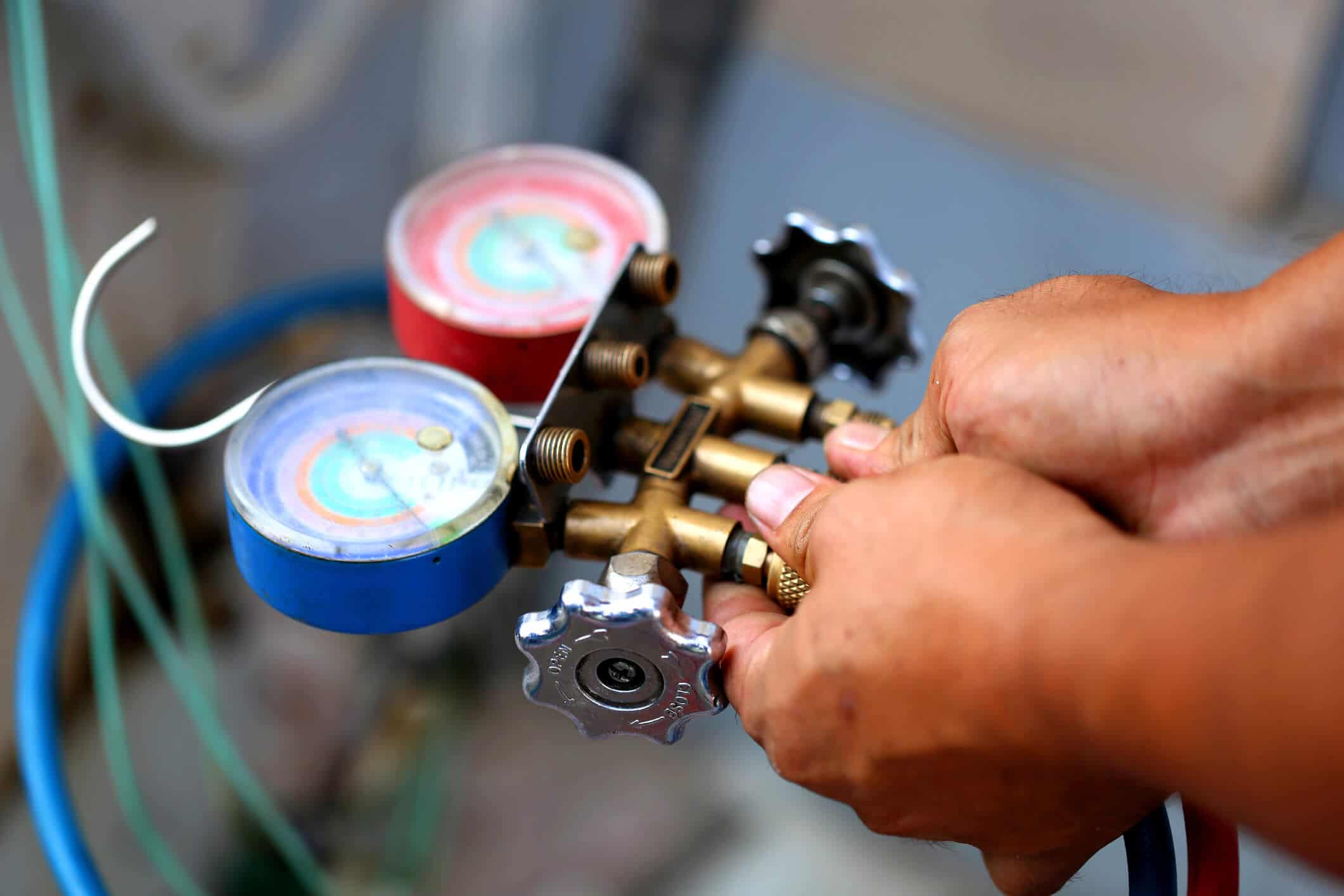
HVAC refrigerant is the chemical that performs the critical function of extracting heat from your house and dispersing it into outside air. What’s left behind indoors is simply cool comfort. Refrigerant can be a frigid vapor or a hot compressed liquid, depending on where it’s circulating in the air conditioning system. It’s also under pressure throughout the cooling process. For these reasons, HVAC refrigerant can be susceptible to leakage.
Symptoms of Low Refrigerant
Air conditioners don’t consume refrigerant. Therefore, refrigerant loss is almost always due to a leak. Here are some typical signs of low refrigerant:
- A/C cools less effectively. The unit runs longer cycles to maintain thermostat settings. Energy consumption and operating costs rise accordingly.
- Humidity reduction is reduced. In addition to cooling, refrigerant circulating through the coil also extracts humidity. When the refrigerant charge drops too low, indoor humidity may rise noticeably.
- Icing on the indoor evaporator coil. Low refrigerant happens when the coil cannot absorb sufficient heat and ice forms as condensation and the coil freezes. Ice may eventually obstruct airflow through the coil.
- Costly component damage. As the A/C compressor runs almost continuously to compensate for insufficient refrigerant, it may overheat and permanently fail. The compressor is the single most expensive component in the system.
How Does Refrigerant Loss Happen?
Refrigerant leakage can result from one of several causes:
- Corrosion affecting the A/C evaporator or condenser coils that circulate refrigerant.
- Physical damage to the copper refrigerant lines that connect the indoor and outdoor coils including kinking, cuts or impact damage.
- Vibration loosening refrigerant line joints and fittings inside the indoor or outdoor A/C units.
Professional Leak Repair
Refrigerant leaks are frequently tiny and not visually apparent. A qualified HVAC Professional uses leak detection technology including a electronic sensor probe to confirm leakage and application of bubble or foam solutions to pinpoint the exact location. When repairing is a fesible option, the HVAC Pro will repair and add refrigerant to get your system cooling again.
For qualified service to diagnose any HVAC problem, contact the professionals at Jackson & Sons.